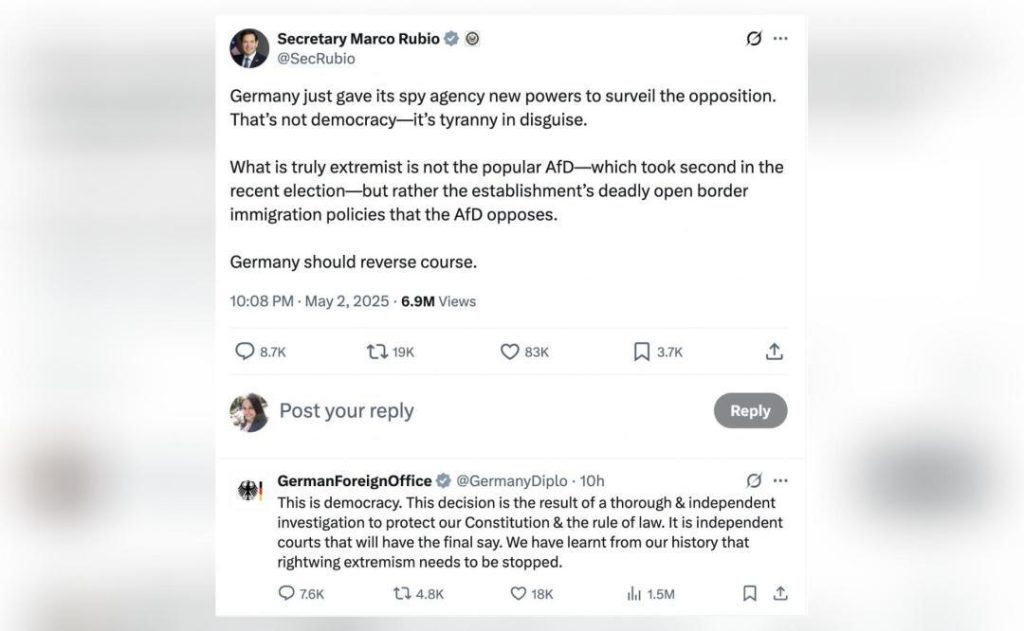
US’ Rubio & German Govt Clash Over AfD Party’s ‘Extremist’ Tag
The United States and Germany are engaged in a heated diplomatic spat over the German government’s decision to term the far-right Alternative for Germany (AfD) party as “extremist”. The crisis began when US Secretary of State Marco Rubio accused Germany of enabling “tyranny in disguise” by designating the AfD party as extremist.
Rubio’s remarks came in response to Germany’s intelligence agency, the Federal Office for the Protection of the Constitution (BfV), declaring the AfD party as having “extremist” tendencies. The BfV’s decision was based on a thorough investigation aimed at protecting Germany’s Constitution.
However, Rubio’s criticism of the German government’s move has sparked a strong reaction from the German Foreign Ministry. In a statement, the ministry replied that the decision regarding the AfD party was the result of a thorough investigation to protect Germany’s Constitution.
The controversy has raised concerns about the growing influence of far-right ideologies in Europe and the potential consequences for democracy and human rights. The AfD party, which was founded in 2013, has been accused of promoting xenophobic and anti-immigrant sentiments. The party has also been criticized for its close ties to far-right groups in Europe and its anti-Semitic rhetoric.
Rubio’s criticism of the German government’s decision has been seen as a rare instance of a US official intervening in the internal affairs of a European country. The US Secretary of State has been a vocal critic of far-right movements in Europe and has advocated for robust action against hate crimes and discrimination.
However, the German government has defended its decision, stating that it is committed to protecting the Constitution and upholding the values of democracy. In a statement, the German Foreign Ministry said, “We stand by our decision and are committed to protecting our Constitution and upholding the values of democracy. We will not be swayed by political pressure or attempts to undermine our democratic institutions.”
The controversy has also raised questions about the role of intelligence agencies in monitoring political parties and the risks of labeling political opponents as “extremist”. The BfV’s decision to term the AfD party as “extremist” has been criticized by some for being overly broad and potentially stigmatizing.
The AfD party has rejected the BfV’s designation, calling it an attempt to silence its political opponents. In a statement, the party said, “We reject the BfV’s designation as ‘extremist’ and consider it an attempt to silence our political opponents. We will continue to fight for our values and principles, regardless of what the BfV says.”
The controversy has also highlighted the growing tensions between the US and Germany over issues related to democracy, human rights, and national security. The two countries have traditionally enjoyed close relations, but there are growing concerns about the impact of far-right ideologies on European politics and the potential risks to democracy and human rights.
In conclusion, the clash between US Secretary of State Marco Rubio and the German government over the AfD party’s “extremist” designation is a significant diplomatic spat that has raised concerns about the growing influence of far-right ideologies in Europe. The controversy has highlighted the importance of protecting democracy and human rights, as well as the need for effective intelligence gathering and political dialogue.



